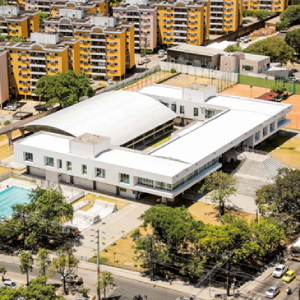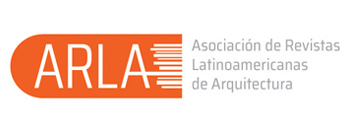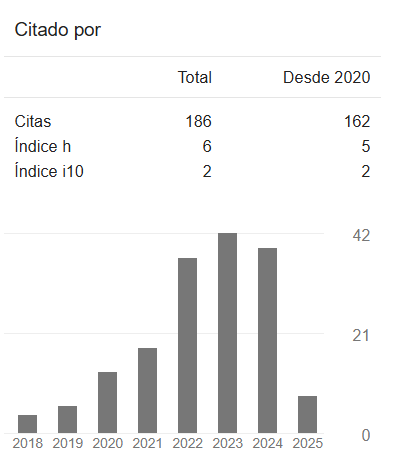Creating urbanity through the void
COMPAZ complexes in Recife, 2016-2021
DOI:
https://doi.org/10.35305/23626097v10i19.422Keywords:
contemporary architecture, social center, social urbanism, Recife, public policiesAbstract
Like other large Latin American cities, the city of Recife coexists with great social needs, lack of infrastructure and high levels of violence. The experiences of Medellín and Bogotá, with the construction of social facilities in deprived areas, inspired a program carried out by the Municipality of Recife called Community Centers of Peace (COMPAZ). From its beginning in 2013, it generated four complexes built between 2016 and 2020. They offer cultural, sports and leisure facilities in needy areas which aid the population in a comprehensive way. This article analyzes how the design of two of these complexes responds to the different urban contexts in which they are inserted. Based on the assumption that they should be landmarks in the urban landscape highlighting a change in State action, we seek to understand how they established a mediation with the place and what strategies were used to make them frank and open to the community. The aim is also to understand how different flows, accesses, and particularities of each use within the building were managed. Thus, this paper seeks to show the potential of architecture to meet urgent social demands.
Downloads
Metrics
References
Capillé, C. (2017). Arquitetura como dispositivo político. Revista Prumo, 2(3). Recuperado de http://periodicos.puc-rio.br/index. php/revistaprumo/article/view/325.
Cavalcanti, M. (2014). As Lições de Bogotá & Medellín: do Caos à Referência Mundial. Recife, Brasil: INTG.
Echeverri, A. y Orsini, F. (2011). Informalidad y urbanismo social en Medellín. ¿Sostenible?, 12, 11-24.
Giedion, S. (1944). The need for a new monumentality. En P. Zucker, New Architecture and City Planning (pp. 549-568). New York: Philosophical Library.
Melguizo, J. (2017, abril 12). Construímos bairros mais seguros convivendo, não com mais polícia, diz ex-secretário de Medellín. [Entrevista concedida a] Bárbara Müller, GaúchaZH, Porto Alegre. Recuperado en https://gauchazh.clicrbs.com.br/porto-alegre/noticia/2017/04/construimos-bairros-mais-segurosconvivendo-nao-com-mais-policia-diz-ex-secretario-de-medellin-9770562. html.
Ponzi, T. y Leite, C. (2021) Urbanismo Social com as cores do Recife. Piauí. Recuperado de https://piaui.folha.uol.com.br/urbanismo-social-com-as-cores-do-recife/
Ratton, J. L., Cireno, F. (2007). Violência Endêmica – Relatório de Pesquisa Homicídios na Cidade de Recife: dinâmica e fluxo no sistema de justiça criminal. En Revista do Ministério Público do Estado de Pernambuco VI, Edição Especial, 17-157.
Rêgo, R. (2018). Política pública e redução da criminalidade urbana: uma análise empírica do COMPAZ em bairros do Recife (Dissertación de Maestria). Universidade Federal de Pernambuco, Recife.
Salla, A. L. (2021). Desafios na transferência de políticas públicas: urbanismo social em perspectiva comparada (Dissertación de Maestria). Insper - Instituto de Ensino e Pesquisa. São Paulo.
Santos, C, Echeverría, D. y Dantas, R (2022). COMPAZ: Espaço de inclusão e transformação social. Recife, Brasil: CEPE.

Published
How to Cite
Issue
Section
License
Copyright (c) 2023 A&P Continuidad

This work is licensed under a Creative Commons Attribution-NonCommercial-ShareAlike 4.0 International License.
Open access policy
A&P Continuidad is a non-profit and open access publication. According to Mexico Declaration on Cultural Policies, the journal distribution is submitted to Creative Commons Attribution-Noncommercial-ShareAlike 4.0 International Public License (CC BY-NC-SA). “Neither the commercial use of the original work nor that of the possible derivative works are allowed. The distribution of derivative works should be submitted to the license regulating the original work. This license is not free.”
A&P Continuidad authorizes the partial or full reproduction of texts and graphs provided that the source is cited. Authors are exclusively responsible for the criteria expressed in the articles which do not necessarily reflect the opinion of the Editorial Committee or that of the Direction Board. The copyright of the published articles pertains to their authors or publishers.
Transfer of rights
The acceptance of an article to be published implies the author’s transfer of rights to the journal. Authors continue to have the right to use the material in future books or publications, approve or veto the republication of their works as well as the rights related to patents or other rights. Transfer of rights form may be downloaded here.





























 This OJS site and its metadata are under a
This OJS site and its metadata are under a 

